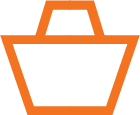We Asked OPRL. They Answered on Recycling
Dec 16, 2024

To combat greenwashing and enhance consumer understanding, standardisation is coming to recycling:
- Defra confirms plans for Simpler Recycling, introducing standardised recycling collections from all households, business and relevant non-domestic premises (such as schools and hospitals). As part of this, councils will need to collect residual waste at least every two weeks.
- Extended Producer: Responsibility for packaging (pEPR) holds producers responsible for managing their products throughout their lifecycle.
- Although mandatory labelling has now been delayed, using the correct labels for packaging is still essential to ensure that consumers know how to dispose of their packaging.
Joining a Recyclable Packaging Certification Scheme
To stay ahead of these changes to recycling and sustainable labelling, we have joined OPRL (the UK's independent experts in packaging recyclability). Over the coming years, you will see more of our products featuring the OPRL ‘Recycle’ logo.

With a mission to help consumers recycle more effectively, OPRL is a not-for-profit organisation and the UK’s independent authority on packaging recyclability. Recognized by the UN Environment Programme as an example of international best practice, OPRL’s labels have influenced new government legislation (pEPR). We reached out to OPRL with a long list of questions on recycling, and we hope you will find their expert answers useful and insightful.
Read our Q & A with Emily Gardiner, Packaging and Recycling Manager, OPRL, and Rachael Sawtell, Marketing Director, Planglow.
Q. Rachael, Planglow
Can coated card go through the regular card recycling waste stream? Does the type of coating matter in terms of recyclability or does it depend on the percentage of coating of the overall packaging item?
Emily, OPRL:
The coating must be single-sided and not waxed, siliconised, or grease-proof. The current threshold for papers under 120gsm is 15%, and 10% for those over 120gsm. Please note this excludes coffee cups, which are treated separately.
Q. Rachael, Planglow
Is this likely to change at any point?
Emily, OPRL:
Defra are currently working on a Recyclability Assessment Methodology which will be used to determine recyclability of packaging. They are looking to align with industry, but we won't know the final detail on this until it is published in the new year.
Q. Rachael, Planglow:
You mention that cups are excluded and treated separately, what about salad bowls and pots (ours are a similar construction to cups, just shorter and wider)?
Emily, OPRL
We get this question a lot. The issue with cups is that they tend to be treated as ‘desk bins’ and come with a lot of other stuff inside them. They are also sometimes stacked up and that makes them difficult to reprocess normally; hence they need a separate collection and reprocessing route. Pots and bowls can go into kerbside collections, as they don’t tend to have the same issues.
In terms of cups intended for hot and cold drinks, under OPRL rules, currently any plastic compostable cups need to be labelled ‘Do Not Recycle’.
Q. Rachael, Planglow:
Can aqueous coated products be recycled? Have any trials been done at the mills taking PE cups with aqueous lined cups?
Emily, OPRL:
Currently all types of coatings are accepted in cup collections and we have not been told that this will change.
The Compostable Coalition has been doing some work on closed loop collections and there have also been some area-specific trials, so it’s possible that in future the rules around purely compostable packaging will be relaxed.
Q Rachael, Planglow:
How are the rules likely to be relaxed?
Emily, OPRL
If it can be shown that there are collection routes for compostable packaging available to more than 75% of the population, and that the reprocessing infrastructure can meet these collections, then these could potentially carry a ‘Recycle’ label in future. However, this is a fairly long way off, as there’s a lot to change.
Q. Rachael, Planglow:
What about lids?
Emily, OPRL:
Lids with an aqueous coating can be labelled ‘Recycle’; they are not treated in the same way as cups.
Q. Rachael, Planglow:
If our products have a PLA coating, are they still accepted in recycling if they fall under the 10% threshold?
Emily, OPRL:
If the PLA coating falls under 10%, then other food packaging (not coffee cups) can use the ‘Recycle’ label, ideally with an ‘Empty’ or ‘Scrape’ call to action, to minimise food waste
Q. Rachael, Planglow:
What level of food contamination is accepted in card recycling?
Emily, OPRL:
In terms of food contamination, as long as the food isn’t three dimensional and stuck to the food packaging, then it’s OK to recycle. So, for example, baked-on cheese on a pizza box would be problematic, but the crumbs wouldn’t be, as they can be brushed off easily.
Q. Rachael, Planglow:
Can card packaging with a window patch go through the regular card recycling waste stream without having to remove the window? Does it matter what the window is made from or is it based on the percentage of plastic of the overall product?
Emily, OPRL:
For non-removable windows, this needs to fall within the OPRL threshold for plastic on card. This currently stands at 10% (and 15% for paper <120gsm).
Q. Rachael, Planglow:
Do product labels need to be removed before recycling?
Emily, OPRL:
Regarding product labels, we wouldn’t normally ask a consumer to remove these. The only exception would be labels on flexible plastic, which can be problematic to reprocessors, depending on the polymer/material. However, compostable plastics – which are not wanted by plastics reprocessors – automatically need to be labelled ‘Do Not Recycle’.
Q. Rachael, Planglow:
Is grease-proof paper suitable for recycling?
Emily, OPRL:
Grease-proof paper should be labelled ‘Do Not Recycle’ unless it has been tested to show that it can be recycled in standard paper mills under the CEPI v2 or Aticelca protocols.
Q. Rachael, Planglow:
Is rPET (recycled PET plastic – polyethylene terephthalate) recyclable? It isn't mentioned as a material under the rules?
Emily, OPRL
Yes rPET can be treated in the same way as APET (Amorphous Polyethylene Terephthalate)
Q. Rachael, Planglow
Is the OPRL logo relevant for business-to-business packaging?
Emily, OPRL
We cover business collections too, so you can still use the ‘Recycle’ and ‘Do Not Recycle’ labels. The main exception to these are flexible plastics and glass, for which we have a specialist B2B label. We are in the process of developing a B2B labelling tool which will be launched later in the year.
Q. Rachael, Planglow:
Can the OPRL logo be added to the product page of a website if it can't be printed on the product or in addition to the product?
Emily, OPRL:
Yes, the recyclability can be printed on the product page to show your B2B customers how they can label their packaging if they are OPRL members.
Q. Rachael, Planglow:
Is it okay for us to add additional wording to our packaging, in addition to the OPRL logo?
Emily, OPRL:
We cannot comment on any other wording used on the packaging, we can only advise regarding the on-pack recycling label itself. It’s important to keep any messaging simple as our research shows that consumers can be confused with lots of information.
Q. Rachael, Planglow:
Can our customers add the OPRL logo to their custom packaging?
Emily, OPRL:
If you are adding a different company's branding (their logo) to the packaging they would need to be a member of OPRL to display our label.
Q. Rachael, Planglow:
With the introduction of Simpler Recycling, are any of the requirements likely to change? If we start adding the logo now and the requirements change, will we have to reprint our products again?
Emily, OPRL:
Under the Simpler Recycling legislation, fibre based composite cups will not be collected at kerbside. Defra confirmed last week that the mandatory take back scheme planned under pEPR has been cancelled, however there is a robust cup takeback scheme in place already, and we will continue to provide our coffee cup collection point label to OPRL members in order to guide consumers on how to correctly dispose of their coffee cups. Therefore, we don’t anticipate any changes to the current labelling.
Thanks to Emily Gardiner from OPRL for her insights into recycling and labelling. Look out for more blogs coming soon on EPR and Simpler Recycling…
For food packaging and labels for caterers, explore our shop.
Find out more about OPRL here.

 Planglow Account Login
Planglow Account Login






